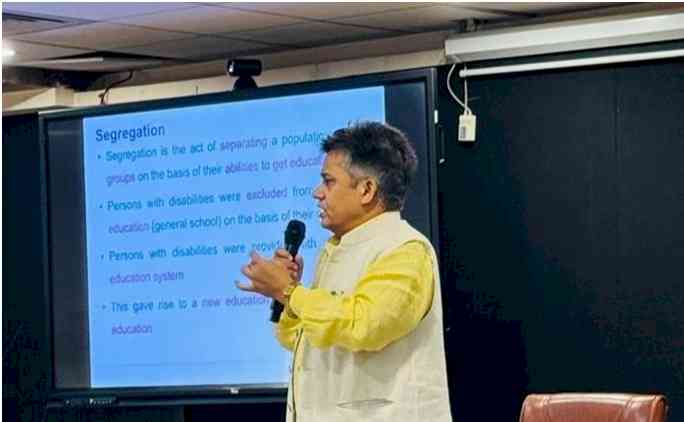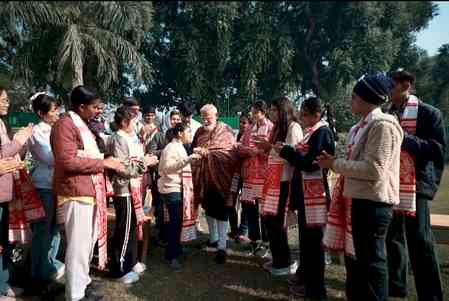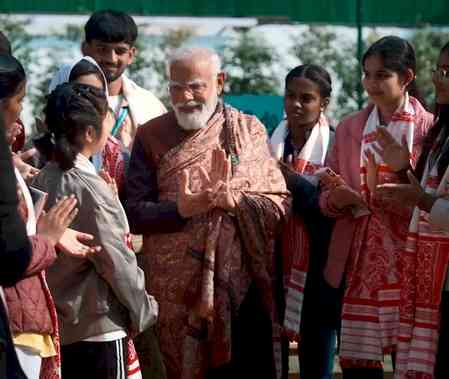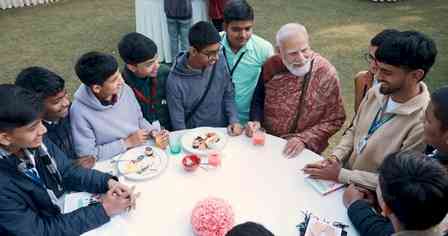CRE Programme on “Inclusive Education and Policies/Legislation in India”
The Department of Community Education and Disability Studies, Panjab University, Chandigarh, organised a Three Days CRE Programme on the theme “Inclusive Education and Policies/Legislation in India,” which started on Monday, under the patronage of Vice-Chancellor Prof. (Dr.) Renu Vig and chaired by Dr. Md. Saifur Rahman, Chairperson of the Department.

Chandigarh, October 13, 2025: The Department of Community Education and Disability Studies, Panjab University, Chandigarh, organised a Three Days CRE Programme on the theme “Inclusive Education and Policies/Legislation in India,” which started on Monday, under the patronage of Vice-Chancellor Prof. (Dr.) Renu Vig and chaired by Dr. Md. Saifur Rahman, Chairperson of the Department.
The inaugural session of the three-day Continuing Rehabilitation Education (CRE) programme commenced today with great enthusiasm and participation from educators, rehabilitation professionals, and scholars from related disciplines. The programme was formally inaugurated by Dr. Gurmeet Singh, Dean, Faculty of Education, who also served as the Chief Guest for the occasion. Dr. Singh, being an expert in physical education, delivered an insightful inaugural address emphasising the relationship between physical activities and the holistic development of children with disabilities. He highlighted how participation in structured physical education can play a crucial role in the rehabilitation, social inclusion, and confidence-building of students with disabilities.
On the first day of the programme, the resource persons were Dr. Navleen Kaur, Professor; Dr. Md. Saifur Rahman, Assistant Professor; Mr. Nitin Raj, Assistant Professor; and Mr. Satparkarsh, Assistant Professor from DCEDS, Panjab University, Chandigarh, and Dr. Ranjit Pathak from PGIMER, Chandigarh. In the first two consecutive sessions, Dr. Md. Saifur Rahman initiated the lecture with the astonishing fact that an inclusive setup is not only beneficial for special needs but also for all children. It helps in creating an equitable society for children with special needs.
Prof. Navleen Kaur also highlighted the different strategies along with accommodation, adaptation, and modification, such as evidence-based strategies, VAKT, and UDL, to handle children with special needs. Mr. Nitin Raj explained the role of assistive technology and ICT in inclusive education.
Dr. Ranjit Pathak helped participants understand the concept of case study and its scope in inclusive education. Mr. Satparkarsh explained how, in an inclusive setup, the role of a teacher is far more important than in a regular classroom. The teacher must be well-equipped with all the required skills and knowledge, and hence, instructions should be tailored according to the individual needs of each learner. Prof. Dazy Zarabi and other faculty members, along with rehabilitation professionals, were present in the programme.
Dr. Md. Saifur Rahman presented the vote of thanks. It was an interactive and informative session for every rehabilitation professional.



 City Air News
City Air News 










